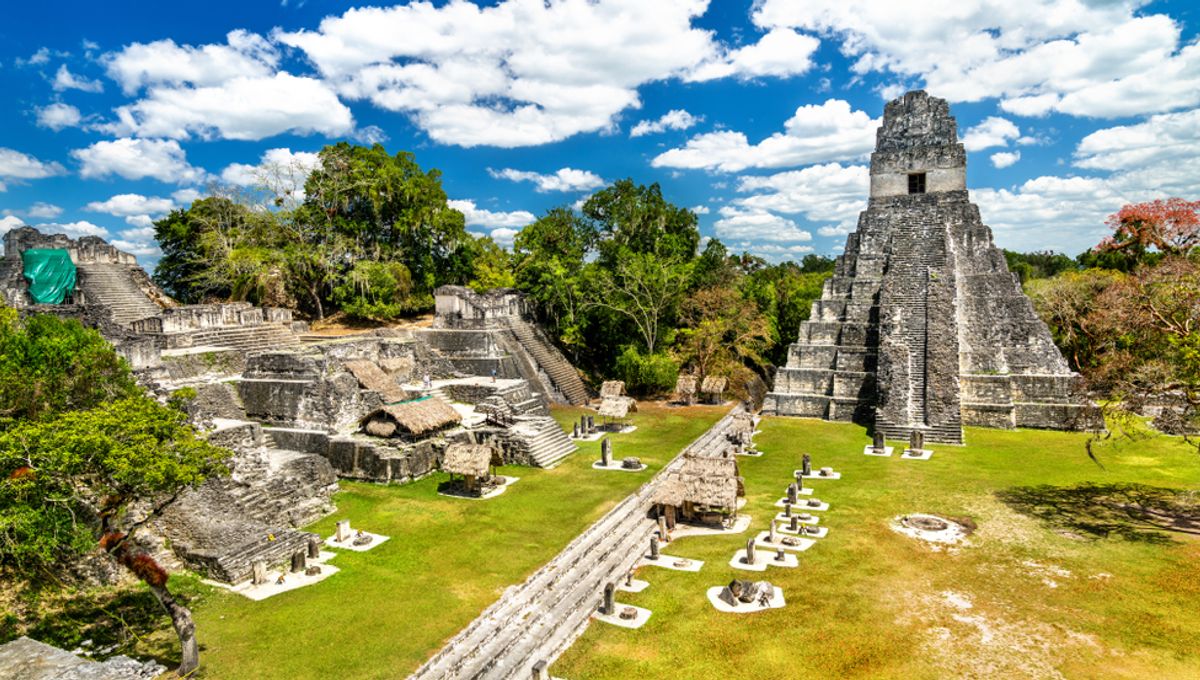
Ancient Maya know-how for providing clean drinking water to vast numbers of people could provide a solution to future water shortages, according to a new study. Outlining the steps taken by the pre-Hispanic civilization to keep people hydrated, study author Lisa Lucero says well-managed reservoirs acted in much the same way as modern constructed wetlands, which rely on physical and biological processes to filter water without the need for chemical treatment.
With its heartland in Mesoamerica, the Maya Kingdom experienced an annual dry season that lasted for around five months, during which time “river levels dropped and became murky and disease-ridden,” writes Lucero in the paper. “To offset seasonal water scarcity, the ancestral Maya constructed reservoirs that were the main source of dry-season water”, she continues, noting that these repositories sustained the Maya Empire “for over a thousand years.”
Among the largest of these reservoirs was the one that supplied the city of Tikal, which could hold more than 900,000 cubic meters (31,783,200 cubic feet) of water. According to Lucero’s calculations, this was more than sufficient to supply the daily drinking, washing, and cooking needs of the 80,000 people that occupied the site during its heyday.
Previous analysis of Tikal’s reservoir has revealed that its base was lined with volcanic zeolite sand, which was imported from around 30 kilometers (18 miles) away and served to filter impurities and pathogens from the water. In addition to this natural filtration system, the Maya also used aquatic plants like cattail, rushes, reeds, and hyacinths to prevent reservoirs from becoming stagnant.
Such plants remove nutrients like nitrogen and phosphorus from the water, thus limiting the growth of dangerous algae. According to Lucero, the water lily was a particularly revered plant in ancient Maya culture due to its association with clean water, and was therefore linked to royalty.
“Kings and water lilies were depicted together on monumental architecture, stelae, murals and portable objects,” writes Lucero. “In fact, kings wore water lily headdresses,” she says, adding that “inscriptions also make mention of Nab Winik Makna or Water Lily Lords (kings) and Ah Nab or Water Lily People (Maya nobility).”
To encourage the growth of water lilies, the Maya lined reservoirs with clay. In turn, the lilies shaded reservoirs, keeping water cool and preventing algal accumulation, while also providing a habitat for dragonflies, fish, and turtles, all of which preyed on mosquitos and other harmful insects. At the same time, harvesting fish excrement and dead aquatic plants would have provided the Maya with high-quality nutrients for their agricultural lands.
Addressing modern and future water needs, Lucero says that constructed wetlands (CWs) similar to those created by the ancient Maya could “contribute to fulfilling the United Nations Sustainable Development Goal 6 to ensure access to clean water for everyone.”
“CWs do not require the use of chemicals or fossil fuels to maintain and after the initial labor-intensive output become self-cleaning and self-sufficient with some maintenance,” she explains. Discussing how such a system might be implemented, Lucero writes, “in addition to constructing various sizes of CWs, families and communities could turn, for example, the millions of swimming pools in the United States into CWs.”
In doing so, she says that we may increase our chances of avoiding the fate suffered by the Maya civilization, which eventually succumbed to severe drought.
The study is published in the Proceedings of the National Academy of Sciences.
Source Link: Genius Ancient Maya Water Trick Could Help Solve Future Water Crisis